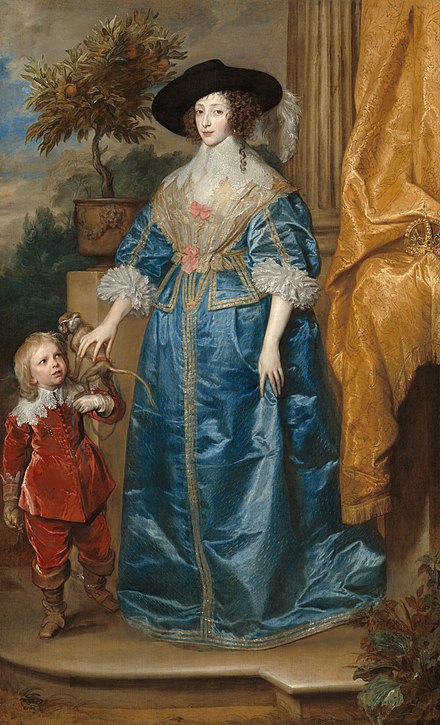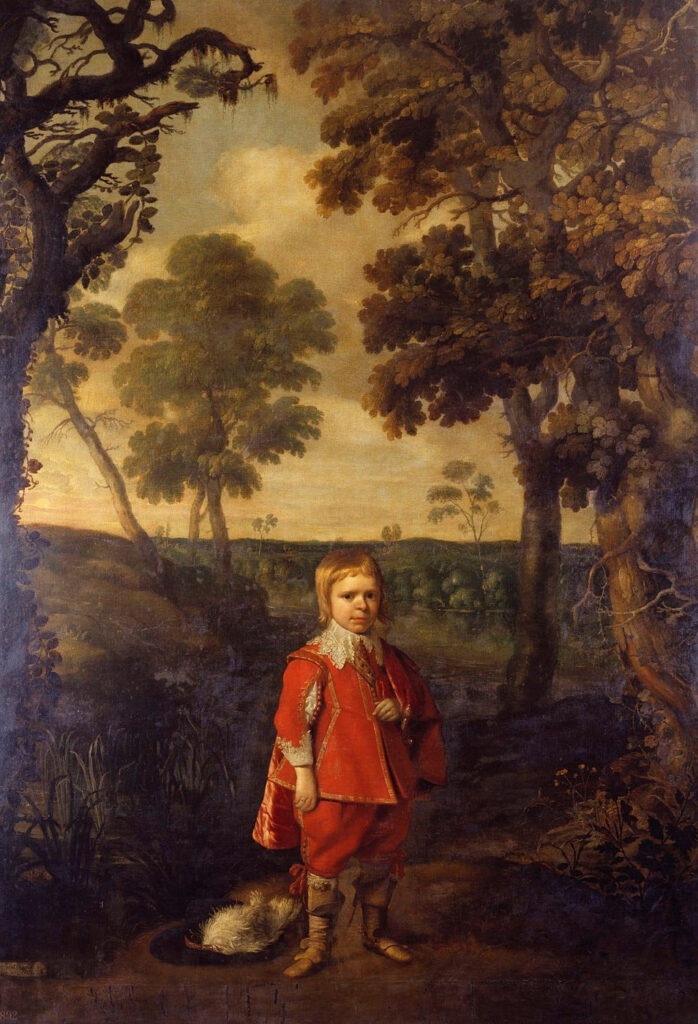When Jeffrey Hudson was presented at a lavish banquet, concealed within a massive pie, few could have predicted the remarkable trajectory his life would take. At just seven years old and standing a mere 18 inches tall, Jeffrey made a grand entrance at the royal court of King Charles I and Queen Henrietta Maria. While most might assume he would simply return backstage after the spectacle, this moment was only the beginning of an incredible journey filled with favor, intrigue, and danger.
Jeffrey Hudson:From Pie to Court Favorite
Jeffrey Hudson was promptly taken under the wing of Queen Henrietta Maria, becoming her personal dwarf and a beloved member of her court for the next 18 years. During this period, his quick wit and charming demeanor made him a court favorite, and he was often seen participating in various entertainments and masques. He was even given the title “Lord Minimus,” a reflection of both his stature and the era’s less sensitive approach to physical differences. Despite his diminutive size, Jeffrey’s presence at court was anything but small. He became an essential figure in the Queen’s household, often accompanying her and participating in elaborate court performances that captivated audiences.
Jeffrey Hudson’s Life at the Royal Court
Jeffrey Hudson’s life at court was full of intrigue and grandeur. The Queen took a particular liking to him, and he was often involved in the theatrical productions that were popular at the time. His small stature made him a novelty, but it was his intelligence and charm that truly endeared him to the Queen and her guests. Unlike other court entertainers who faded into the background after their performances, Jeffrey became a close confidant to Queen Henrietta Maria, even serving as her messenger on occasion.

Anthony van Dyck, Public domain, via Wikimedia Commons
Despite his unique position, life at court was not without its challenges. Hudson was frequently the subject of mockery and the butt of jokes because of his height. The court’s fascination with “freaks” and oddities meant that he was often put on display for the amusement of the nobility. While he navigated these challenges with grace, it was clear that beneath the jovial surface lay a man who was tired of being treated as a curiosity.
The Duel That Changed Everything For Jeffrey Hudson
The turning point in Jeffrey’s life came in 1644, during the English Civil War. A seemingly trivial dispute arose between Hudson and William Crofts’ brother, a fellow courtier. In the volatile atmosphere of the time, this disagreement escalated rapidly. Dueling, though officially forbidden, was still a common way to settle disputes among the nobility. Both men decided to face off in what would become a fateful encounter.
To many, it must have seemed absurd—a duel involving the court dwarf. Crofts’ brother, underestimating Jeffrey Hudson, arrived at the duel with a large water squirt gun, possibly thinking it would be a humorous way to humiliate his opponent. Jeffrey, however, had no intention of being mocked any longer. Armed with a real pistol, he shot and killed Crofts’ brother on the spot.
This shocking event sent ripples through the court. The Queen’s Master of Horse and head of her lifeguards, William Crofts, was a powerful figure, and the death of his brother could not simply be ignored. The duel was a violation of both court etiquette and the law, which prohibited dueling in France where the court was in exile at the time. Initially, Hudson was sentenced to death for his actions. However, Queen Henrietta Maria, who had a deep affection for him, intervened and pleaded for his life. As a result, his sentence was commuted to exile, and he was sent back to England.
Jeffrey Hudson’s Adventures and Misfortunes
Even after leaving the court, Jeffrey Hudson’s life did not quiet down. During the chaos of the English Civil War, he was captured by Barbary pirates and taken to North Africa, where he was enslaved for nearly 25 years. This period of captivity was a harsh and grueling experience, far removed from the luxury of the royal court. Hudson’s resilience was tested to its limits, but he managed to survive and eventually gain his freedom.

After his long ordeal in captivity, Hudson returned to England. By this time, the political and religious landscape of the country had changed significantly. The monarchy had been restored, and Catholicism, which he openly practiced, was once again viewed with suspicion. Jeffrey was arrested and imprisoned for being a Catholic during a time when anti-Catholic sentiment was high. Despite these tribulations, Hudson remained a figure of intrigue until his death in 1682.
The Complexity of Jeffrey Hudson’s Legacy
Jeffrey Hudson’s story is a complex tapestry of privilege and hardship, favor and fall. His early life as a royal court favorite was marked by luxury and influence, but it was also overshadowed by the constant objectification and exploitation due to his size. While he enjoyed the favor of the Queen and the nobility, he was also seen as an entertainer, valued more for his novelty than for his personhood.
The duel that led to his exile was a tragic consequence of the period’s attitudes toward honor and reputation. In an environment where dueling was an accepted, if illegal, means of resolving disputes, Hudson’s actions, though extreme, were in line with the norms of his time. His opponent’s underestimation of him proved fatal, underscoring the societal tendency to dismiss individuals based on their physical appearance rather than their capabilities.
A Life Marked by Adventure and Survival
Jeffrey Hudson’s later life was marked by survival against the odds. His capture and enslavement by Barbary pirates was a stark contrast to his previous life of courtly entertainment. The experience likely exposed him to the harsh realities of a world that had little regard for status or privilege. His resilience in the face of such adversity speaks to a strength of character that was perhaps overlooked during his time at court.

